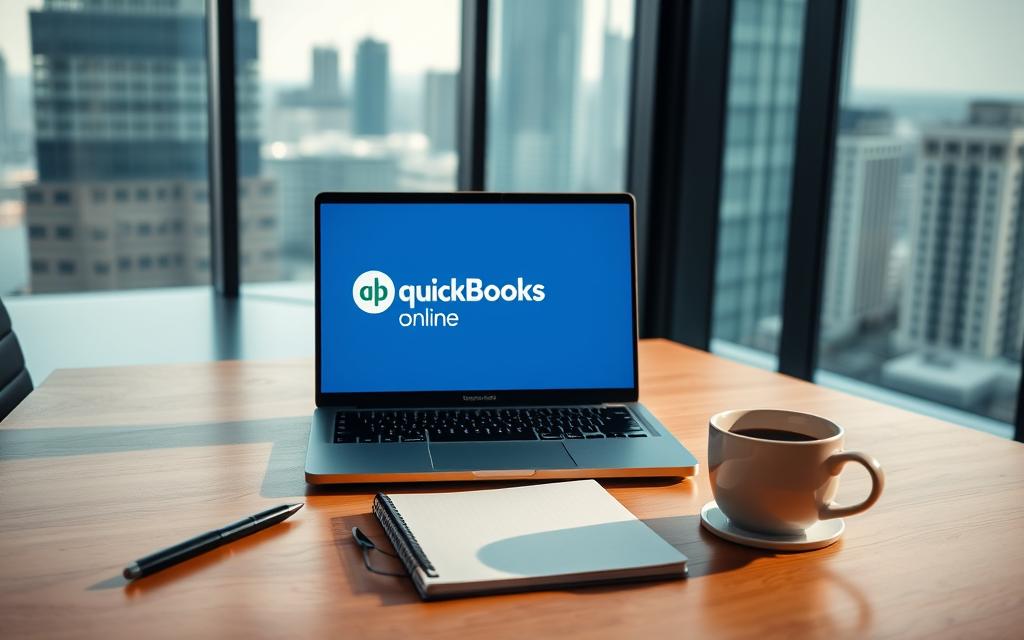As individuals seek more comprehensive solutions for managing their personal finances, some are turning to business accounting software like QuickBooks. This trend raises an important question: can a business-oriented tool effectively serve personal financial needs?
The appeal of using QuickBooks for financial management lies in its robust features, which can potentially offer detailed insights into one’s income and expenses. However, individuals must weigh the pros and cons of adopting this accounting software for personal finance purposes.
This article will examine the suitability of QuickBooks for managing personal finances, exploring its key features, advantages, and limitations, to help individuals make an informed decision.
Understanding QuickBooks Online and Its Primary Purpose
Designed to simplify financial operations, QuickBooks Online is a comprehensive accounting platform that offers a range of financial management tools. As a cloud-based solution, it allows users to access their accounts from anywhere, at any time.
What is QuickBooks Online?
QuickBooks Online is a finance software that assists businesses with bookkeeping, accounting, payroll, inventory management, and other financial. It is designed to automate common financial operations, making it an essential tool for businesses.
With QuickBooks Online, businesses can track accounts and payments, maintain invoices, and manage other financial tasks such as payroll and taxes on the go.
Designed for Business vs. Personal Use
QuickBooks Online was initially developed and optimised for business accounting needs, highlighting its robust capabilities for tracking business transactions, managing accounts payable and receivable, and generating business-specific reports.
While QuickBooks Online is designed for business use, its comprehensive nature as a financial tool provides capabilities that exceed those of typical personal finance applications. However, this added complexity may present challenges for personal users.
Can QuickBooks Online Be Used for Personal Finances?
The versatility of QuickBooks Online allows it to be used for personal financial management, albeit with certain adaptations. While it is primarily known for its business accounting capabilities, the software’s robust features can be effectively utilised for managing personal finances.
The Short Answer: Yes, But With Adaptations
Yes, QuickBooks Online can be used for personal finances, but it requires a tailored approach to setup and customisation. This involves adapting its business-oriented features to suit individual needs, such as setting up a new company file for personal use and customising the chart of accounts to reflect personal income and expense categories. As noted by financial experts, “utilising accounting software like QuickBooks for personal finance can provide a comprehensive view of one’s financial situation.”
Who Might Benefit from Using QuickBooks for Personal Finances
Individuals with complex financial situations, such as those with multiple income streams, rental properties, or significant investments, may find QuickBooks particularly useful. Freelancers and contractors who need to separate personal and business finances can also benefit from QuickBooks’ robust tracking capabilities. Those with substantial tax considerations or a need for detailed financial reporting may also find value in using QuickBooks for personal finance management.
Ultimately, the decision to use QuickBooks for personal finances depends on the complexity of one’s financial situation and the level of detail required. For those with straightforward financial situations, simpler personal finance tools might be more appropriate and cost-effective.
Setting Up QuickBooks Online for Personal Financial Management
To utilise QuickBooks Online for personal financial management, one must first navigate the setup process. This involves several key steps that tailor the platform to individual needs.

Creating a New Company File for Personal Use
Begin by creating a new company file in QuickBooks Online, naming it appropriately for personal finance management. This file will serve as the foundation for tracking personal financial transactions.
When setting up the company file, configure the settings for currency, fiscal year, and tax information to suit personal financial needs.
Customising the Chart of Accounts for Personal Categories
Customise the Chart of Accounts to reflect personal finance categories rather than business ones. Modify existing accounts and create new ones for expenses such as groceries, utilities, and mortgage or rent.
Consider setting up accounts for savings goals, emergency funds, or specific investments to enhance personal financial tracking.
Connecting Bank Accounts and Credit Cards
Link bank and credit card accounts to QuickBooks Online for real-time transaction updates. This integration simplifies the process of tracking expenses and income.
Set up automatic transaction downloads and categorisation rules to minimise manual data entry and maintain up-to-date financial records.
Key Features of QuickBooks Online for Personal Finance
For individuals seeking to streamline their personal financial management, QuickBooks Online provides a robust set of features.

Expense Tracking and Categorisation
QuickBooks Online enables users to track expenses across multiple accounts efficiently. By connecting bank and credit card accounts, transactions are automatically fed into the system, making it easier to categorise expenses accurately. Users can create custom categories for personal expenses such as groceries, healthcare, or entertainment, allowing for more precise financial tracking.
Income Management from Multiple Sources
Managing income from multiple sources is simplified with QuickBooks Online. Whether you have a salary, freelance work, investments, or rental properties, the platform allows you to consolidate all income streams into one manageable system. This feature is particularly beneficial for individuals with diverse income sources.
Budgeting Tools and Capabilities
Creating and monitoring personal budgets is a straightforward process with QuickBooks Online. Users can set financial goals and track their progress over time, making it easier to stay on top of their finances. The budgeting tools enable individuals to make informed decisions about their spending habits.
Financial Reporting and Analytics
The financial reporting and analytics features of QuickBooks Online provide valuable insights into spending patterns, income trends, and overall financial health. Customisable reports can be tailored to personal finance needs, such as tracking discretionary spending or monitoring savings rates. This level of detail helps individuals understand their financial situation more comprehensively.
By leveraging these key features, QuickBooks Online offers a comprehensive solution for personal finance management that goes beyond basic personal finance apps. Its ability to handle complex financial situations makes it an ideal choice for individuals seeking a more holistic view of their finances.
Pros of Using QuickBooks Online for Personal Finances
The advantages of using QuickBooks Online for personal finance are multifaceted, offering a comprehensive financial management solution. By leveraging this powerful tool, individuals can gain better control over their financial lives.
Comprehensive Financial Tracking in One Place
QuickBooks provides a centralized platform where users can monitor all aspects of their financial life, from daily expenses to long-term investments. This comprehensive view helps in making more informed financial decisions. With all financial information in one place, including bank accounts, credit cards, investments, and loans, users can create a more complete financial picture.
Powerful Reporting and Analysis Tools
QuickBooks’ reporting and analysis tools exceed the capabilities of most personal finance apps, allowing for deeper insights into spending patterns, income trends, and overall financial health. These advanced reporting features enable users to make more informed financial decisions based on historical data and projected trends.

Bank Integration and Automatic Transaction Categorisation
The bank integration and automatic transaction categorisation features of QuickBooks significantly reduce manual data entry and help maintain up-to-date financial records. This integration ensures that financial data is current and accurate, saving users considerable time.
Mobile Accessibility and Receipt Scanning
With QuickBooks Online, users can manage their finances on the go, thanks to its mobile accessibility. Features like receipt scanning simplify expense tracking, making it easier to keep financial records up to date. This mobility is particularly beneficial for individuals with busy lifestyles.
In summary, QuickBooks Online offers a robust set of tools for personal financial management, including comprehensive tracking, powerful reporting, bank integration, and mobile accessibility. These features collectively provide individuals with greater financial clarity and control, making it an attractive option for those seeking a sophisticated personal finance solution.
- Comprehensive financial tracking in a single platform
- Advanced reporting and analysis for deeper financial insights
- Bank integration for automatic transaction categorisation
- Mobile accessibility for managing finances on the go
Cons and Limitations for Personal Finance Use
QuickBooks Online, primarily designed for business accounting, presents several challenges when used for personal finance management. While it offers a robust platform with various features, its suitability for individual users is impacted by certain limitations.
Cost Considerations
The cost of using QuickBooks Online can be a significant drawback for personal finance management. With subscription plans ranging from $25 to $150 per month after initial promotional periods, it may be more expensive than dedicated personal finance apps. For individuals with basic financial needs, this cost may not be justified.
| Service | Monthly Cost |
|---|---|
| QuickBooks Online Simple Start | $25 |
| QuickBooks Online Essentials | $40 |
| QuickBooks Online Plus | $60 |
| Advanced | $150 |
Complexity and Learning Curve
QuickBooks was designed with business users in mind, resulting in a steeper learning curve compared to apps specifically designed for personal finance. The business-oriented interface and terminology may confuse personal users without accounting knowledge.
“The complexity of QuickBooks can be overwhelming for personal users, making it essential to weigh the benefits against the learning curve.”
Business-Oriented Features You Won’t Need
Features like invoicing, payroll, and inventory tracking, while valuable for businesses, are unnecessary for personal finance management. These features can clutter the interface, adding complexity for personal users.
Limited Investment Tracking Capabilities
QuickBooks has limitations in tracking investments compared to dedicated investment platforms. It may struggle with complex investment portfolios, retirement accounts, or calculating investment performance metrics, potentially impacting its effectiveness for users with sophisticated financial situations.
In conclusion, while QuickBooks Online can be used for personal finance management, its limitations, including cost, complexity, and unnecessary features, should be carefully considered. Individuals should assess their specific financial needs to determine if QuickBooks is the right tool for them.
Advanced Personal Finance Management with QuickBooks
QuickBooks Online offers advanced features that can significantly enhance personal finance management for individuals with complex financial situations. By leveraging these features, users can gain a more comprehensive understanding of their financial health.
Tracking Investments and Assets
To effectively track investments, start by setting up separate accounts in QuickBooks for different types of investments, such as stocks, bonds, or real estate. This organisation allows for the recording of various investment transactions, including buys, sells, dividends, and interest income. Although QuickBooks may not provide complex investment performance metrics, it is effective in tracking the overall value of investments and the income they generate.
- Set up separate accounts for different investment types
- Record investment transactions such as buys, sells, and dividends
- Monitor the overall value and income of your investments
Managing Debt and Loans
QuickBooks can also be used to manage debt and loans effectively. This includes tracking loan balances, recording payment schedules, and monitoring interest expenses. For individuals with multiple debt obligations, such as mortgages or student loans, QuickBooks provides a comprehensive view of liabilities alongside assets.
- Track loan balances and payment schedules
- Record interest expenses to understand the total cost of loans
- Monitor multiple debt obligations in one place
Tax Planning and Preparation
For tax planning and preparation, QuickBooks allows users to categorise tax-deductible expenses, track charitable contributions, and generate reports that simplify tax filing. The detailed transaction records and customisable reporting in QuickBooks provide valuable information for tax planning strategies and maximising legitimate tax deductions.

By utilising QuickBooks for advanced personal finance management, individuals can benefit from a more comprehensive financial management system than typical personal finance tools. This is particularly advantageous for those with complex financial situations, requiring detailed tracking and reporting.
QuickBooks Online Pricing Plans for Personal Use

When considering QuickBooks Online for personal finance management, understanding the pricing plans is crucial. QuickBooks offers four paid plan options, each with varying features and costs.
The plans include Simple Start, Essentials, Plus, and Advanced, with costs ranging from $12.50/month for the first three months to $75/month for the Advanced plan. For personal use, the Simple Start plan is typically the most suitable, offering core functionality at a lower cost.
Selecting the Right Plan for Personal Finances
To select the most appropriate QuickBooks plan for personal finances, consider your financial complexity and reporting needs. For most individuals, the Simple Start plan will suffice, providing essential features like expense tracking and financial reporting.
It’s essential to make sure you’re not overpaying for features you won’t utilise. For more information on using QuickBooks for personal finance, you can visit https://hevodata.com/learn/quickbooks-for-personal-use/.
Evaluating the number of users and the level of support needed can also help in choosing the right plan. For personal use, the cost and features should align with your specific financial management needs.
Conclusion: Is QuickBooks Online Right for Your Personal Finances?
Ultimately, the decision to use QuickBooks Online for personal financial management hinges on understanding its capabilities and how they match your financial situation and goals.
Throughout this article, we’ve explored the pros and cons of using QuickBooks Online for personal finances, highlighting its comprehensive tracking capabilities, powerful reporting tools, and ability to handle complex financial situations.
However, we’ve also discussed notable limitations, including cost, complexity, and a business-oriented design. To make an informed decision, it’s crucial to weigh these factors against your individual needs and financial complexity.
If you have a straightforward financial situation, QuickBooks Online might not be the optimal solution. However, for those with complex financial situations or a desire for detailed tracking and reporting, it could be a valuable tool. We recommend starting with a trial to evaluate its suitability before committing to a paid subscription.
FAQ
Is QuickBooks suitable for managing personal finances?
Although QuickBooks is primarily designed for business use, it can be adapted for personal financial management, offering a comprehensive tool for tracking income, expenses, and cash flow.
How do I set up QuickBooks for personal use?
To use QuickBooks for personal finances, create a new company file, customise the chart of accounts to suit personal categories, and connect bank accounts and credit cards to track transactions.
What are the benefits of using QuickBooks for personal finance management?
The benefits include comprehensive financial tracking, powerful reporting and analysis tools, bank integration, and automatic transaction categorisation, making it easier to manage finances.
Are there any limitations to using QuickBooks for personal finances?
Yes, there are limitations, including cost considerations, a potentially steep learning curve, and business-oriented features that may not be necessary for personal use.
How do I track investments and assets using QuickBooks?
QuickBooks allows users to track investments and assets, providing a more comprehensive picture of their financial status, although it may require some manual configuration.
What pricing plan is suitable for personal use?
The suitable pricing plan depends on the features required; users should select a plan that meets their needs, considering factors such as the number of users and required features.
How do I manage debt and loans using QuickBooks?
QuickBooks enables users to manage debt and loans, tracking payments and balances, and providing a clear picture of their financial obligations.
Is it possible to access QuickBooks on mobile devices?
Yes, QuickBooks offers mobile accessibility, allowing users to scan receipts, track expenses, and access financial information on-the-go.








